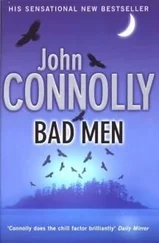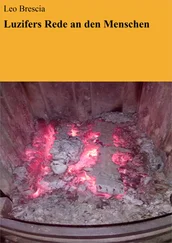Jean Rouaud - Of Illustrious Men
Здесь есть возможность читать онлайн «Jean Rouaud - Of Illustrious Men» весь текст электронной книги совершенно бесплатно (целиком полную версию без сокращений). В некоторых случаях можно слушать аудио, скачать через торрент в формате fb2 и присутствует краткое содержание. Год выпуска: 2011, Издательство: Arcade Publishing, Жанр: Современная проза, на английском языке. Описание произведения, (предисловие) а так же отзывы посетителей доступны на портале библиотеки ЛибКат.
- Название:Of Illustrious Men
- Автор:
- Издательство:Arcade Publishing
- Жанр:
- Год:2011
- ISBN:нет данных
- Рейтинг книги:4 / 5. Голосов: 1
-
Избранное:Добавить в избранное
- Отзывы:
-
Ваша оценка:
- 80
- 1
- 2
- 3
- 4
- 5
Of Illustrious Men: краткое содержание, описание и аннотация
Предлагаем к чтению аннотацию, описание, краткое содержание или предисловие (зависит от того, что написал сам автор книги «Of Illustrious Men»). Если вы не нашли необходимую информацию о книге — напишите в комментариях, мы постараемся отыскать её.
Of Illustrious Men — читать онлайн бесплатно полную книгу (весь текст) целиком
Ниже представлен текст книги, разбитый по страницам. Система сохранения места последней прочитанной страницы, позволяет с удобством читать онлайн бесплатно книгу «Of Illustrious Men», без необходимости каждый раз заново искать на чём Вы остановились. Поставьте закладку, и сможете в любой момент перейти на страницу, на которой закончили чтение.
Интервал:
Закладка:
For there is a before and an after in Brittany: the before of the tiny little landholdings, the headache of the land-registry experts, which in the case of a large family got parceled out until the heirs were left with just enough land to stand up on and the right to emigrate, and the after of the regrouping when, in view of the pathetic yields produced by Breton agriculture, the top-level decision was taken to force the whole region to come to terms with modernity. Modernity is recognized by the fact that it refuses to make do with the leftovers. In those shrunken fields, how could anyone operate those enormous machines that in a single hour can get through a week’s work for ten men? How can the earth be fertilized without the nitrogen dressing that encourages the growth of bindweed and daisies? How can the starlings be prevented from pecking at the sown grain, and thus devouring the anticipated harvest? How can the peasant be induced to abandon his barren soil by extolling the merits of the life of the factory worker and the delights of the city? How can what is now dispersed — fields, houses, animals — be integrated? How can what is now integrated — generations, memories — be dispersed? The great Creator-Designer, closeted in his study, swept a devastating arm over Brittany the way a drunken soldier clears a cluttered table. Having removed its blemishes, he redrew the land in vast rectangles; he drew nice wide straight tracks over it, and then, seeing that it was good, he appended his signature to his great creation. The lettre de cachet was sent to this distant province, and the work of devastation could begin.
It was explained to the peasant, who was used to shuttling back and forth behind his animals, that from now on he would be able to keep an eye on them from his window. By what miracle? His few scattered acres were going to be turned into a single, continuous tract of land adjacent to his farm. The negotiator, who was expecting to see a grateful smile spread over the man’s face, very soon came to the conclusion that these people were never satisfied. But would this reconstituted land yield as much as the bit down by the river? A little less, but that was why he was being offered a few extra acres in compensation. In other words, more land to cultivate, and more work, for produce of inferior quality. How did that even things up? And in such an exchange, who would inherit that good bit of pasture down by the water? The fellow who has been coveting it and who’s on such good terms with the authorities? At this stage of the negotiations, the representative of the Republic realized he had no alternative but to retreat.
The discussions fostered resentments, revived old quarrels. Supporters and adversaries of the regrouping opposed one another vigorously. The cafes became the echo of these stormy debates. The tiniest bistro was transformed into a revolutionary Procopius. The whole thing was beginning to look like a new Dreyfus affair, dividing families and communes. Rumors spread: about one man who’d seen the value of his land multiply tenfold since he’d managed to get them to run a road through it; about another who’d been cheated and had decided to put an end to it all. No one knew exactly how, but the regrouping was fraught with menace. Some of them threatened to stop the invaders by chaining themselves to their fences. There was no counting the number of people who declared it would only happen “over my dead body.” But without waiting for the outcome of these discussions, the bulldozers went to work.
All day long the drone of their engines could be heard throughout the countryside, sometimes getting louder when they came up against an unexpected obstacle, perhaps a recalcitrant tree stump, increasing in intensity, infuriated that anything should oppose their progress. When they stopped for a break, you needed a moment’s silence before you could feel you were once more at home in space, as if it had been blown to smithereens and was cautiously resettling itself. Your ear had become so accustomed to the racket that at first it found the absence of noise strange, but it gradually reeducated itself by enjoying the song of a bird, the sound of the wind, the rustling of the leaves, or the passing squelch of a moped going by in the rain.
The gigantic mechanical diggers cleared the way for new roads just as the fancy took them. You could easily see where the roads were being planned by following the zip-lines of their caterpillar tracks. They shaved off the hedges without even seeming to notice them, crushed the brushwood with contempt, bashed into the hedges as you might kick aside an anthill, filled in the ditches and horse ponds, laminated the mounds on which the cows liked to station themselves to enjoy a better view of the landscape.
Even the great haughty oak trees were subjected to the law of the strongest. The front blade of the bulldozer wedged itself against the bark, the engine revved up at full throttle, and the enormous mass began to push. In vain. The trunk remained motionless, confident of its legend, displaying an obstinate assurance. But then the fury of the machine was communicated to the whole earth. The vibration of the levers, those vertical metal shafts crowned with a black Bakelite knob, sent a tremor through the entire body of the man clutching the controls. The caterpillar tracks started skidding. Faced with this energy run riot, the branches began to sway. You hoped it was all just an optical illusion caused by the clouds drifting by behind the foliage, the way the moon seems to glide through the storm clouds. But on this presumption, the machine merely increased its violence, an enraged ram intent on the destruction of its victim, and the facts soon had to be faced: the clouds were indeed passing by, but the tree was inclining. It didn’t come crashing down, like a tree yielding to the axe. With each degree of inclination it clung on with all its might, refusing to capitulate, but when at last its roots were laid bare they had at least taken with them a chunk of Mother Earth as proof of their evisceration. After one last triumphant thrust, the tree was finally flattened in a rustle of foliage drowned by the sound of the engine, and it lay with its branches and roots on either side of its bole, like a symmetrical bone.
In the middle of an orchard, it was an unequal contest. Despite their numerical superiority, the old apple trees drawn up in battle order soon regretted having teased the valiant warrior in the yellow armor. The machine pivoted on its axis, trying to breach the circle of its assailants — on your right, Sire, on your left — and the tortured trunks went flying like straws in the wind. No more apple trees, no more apples, no more cider, no more home distillers. It was said that the drivers got a bonus for every tree they felled. We imagined them drawing little miniature forests on their monsters’ flanks, like the marks fighter pilots make on the fuselage to show the number of planes they have shot down.
Nothing seemed to be able to stop them, these methodical hordes who were carrying out a new kind of scorched earth policy in the name of reason. Uniformly sweeping away everything in their path, one by one they stripped mysterious Brittany of her veils, allowing the eye, amazed to be able to reach so far without any intervening curtain of trees, to see the land of Arcoat as naked as the faces of Persian women when Pahlavi’s soldiers forcibly unveiled them. The residue of this great earthwork was piled up at the far end of the plain, the way a housewife temporarily deposits a little heap of dust on her doorstep; gigantic, sepulchral accumulations of earth and brushwood with which the passing years gave asylum to the new landscape’s rejects: self-propagating weeds, bramble bushes, gorses, and homeless birds, allowed to build their exhausted colonies in these primitive encampments. The progressive cleansing of a rebellious community. The work of annexation, begun in the bed of the little lame duchess, Anne of Brittany, in which two kings of France slept, was complete.
Читать дальшеИнтервал:
Закладка:
Похожие книги на «Of Illustrious Men»
Представляем Вашему вниманию похожие книги на «Of Illustrious Men» списком для выбора. Мы отобрали схожую по названию и смыслу литературу в надежде предоставить читателям больше вариантов отыскать новые, интересные, ещё непрочитанные произведения.
Обсуждение, отзывы о книге «Of Illustrious Men» и просто собственные мнения читателей. Оставьте ваши комментарии, напишите, что Вы думаете о произведении, его смысле или главных героях. Укажите что конкретно понравилось, а что нет, и почему Вы так считаете.












